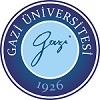
Send us your opinions, requests and evaluations.
Our department has a PET-BT camera, four double-headed SPECT gamma cameras, a high resolution gamma camera for mammary scintigraphies, an uptake device, a gamma probe used during surgeries, and two exercise ECG devices. In addition, high dose radionuclide treatment services are provided in 2 patient rooms and in our nuclear medicine service. Our department houses 7 academic members, 7 research assistants, one health physicist, 2 radiopharmacy specialist, 12 technicians and 4 nurses. All of the department staff aim to provide patients with the services they deserve in all the fields of nuclear medicine.
Approximitely 10000 scintigraphic processes (regarding the whole organ systems), 400 radionuclide treatment (I-131, Re-186, Sm-153, Y-90 and I-131 like lipiodol), and 5000 C-14 urea breathing tests are performed in our department every year. The PET-BT unit which started to serve patients as a first in Turkey in 2004 has performed over 15000 FDG PET-BT examinations for patients until this day.
Nuclear medicine specialty students, medical school’s term I-V students and our university’s academy of professional health services students are schooled in our department. During an academic year our academic members teach theoretical courses to Medical School Term II students for 4 hours and term III students for 10 hours. In addition V internship group is taught 9 hour theoretical and 9 hours practical courses.
The department has schooled 24 nuclear medicine specialists and has received the UEMS (European Union Medical Spacialists) accreditation in the field of nuclear medicine training. At Gazi University the nuclear medicine specialty training is a programme of 4 years. This programme handles nuclear medicine both in terms of clinic and research. Assistants actively attend all nuclear medicine practices covering nuclear cardiology, oncology, endocrinology, nefrology, neurology and radionuclide treatment. Assistants are responsible for evaluating patients’ files, patient interviews and examinations, stress application on patients, and evaluating the image quality and contents. They attend image interpreting sessions. In addition to their clinical responsabilities, assistants are also trained in the fields of radiopharmacy, physics and instrumentation.

Send us your opinions, requests and evaluations.